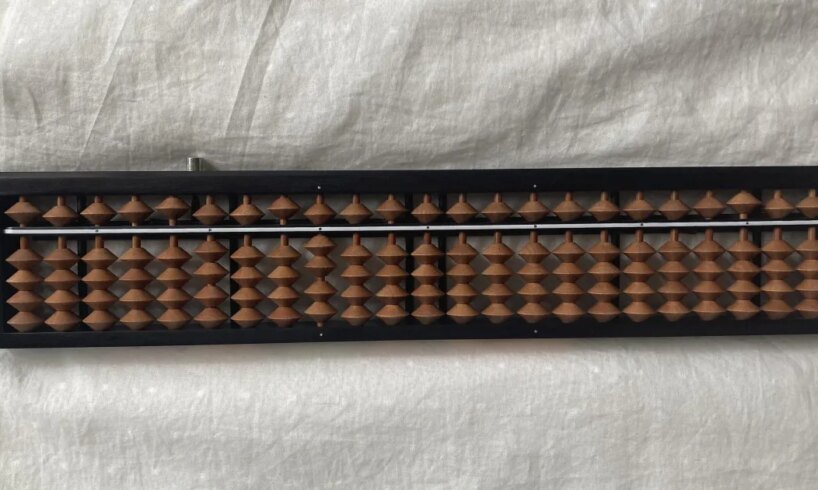
Who needs hacking? We got clacking!
When I first heard my daughter was going to take abacus lessons after school, I didn’t really know what to make of it. I never touched one myself and just considered it one of those obsolete tools of yesteryear, like the sextant or washboard — especially in this day and age, where I can not only make any calculation on my phone but even generate a video of an octopus doing the calculation for me in seconds.
But after a few years of it, I have to say I’m impressed with how well she can do mental arithmetic, such as multiplying numbers in the hundreds together with minimal effort. And she’s just one of the growing number of kids in Japan taking up the ancient skill of bead counting.
Actually, abacus education for kids was historically huge in Japan, and by its peak in 1986, there were over 13,000 places where you could learn the abacus across the country. However, the invention of the pocket calculator led to a huge drop in abacus classrooms, which plummeted to 5,227 in 2021, a drop fueled in part by the COVID-19 pandemic.
Luckily for abacus instructors, the bottom was in, and not only has abacus usage among kids been on the rise for the past four years, but it has even surpassed levels before the pandemic, with an estimated eight percent of elementary school students sliding beads up and down. According to a survey by educational material company Gakken, It has also become the sixth most popular extracurricular activity, beating out soccer in terms of how many kids are doing it.
▼ A news report on the revival of the abacus
A big reason for this is to prepare for junior high school entrance exams. These tests put a high weight on math skills because they show a general ability for logical thinking that can be applied to other subjects as well. Even though abacuses aren’t used in these tests, as I mentioned before, they help kids do arithmetic in their heads and even just develop a general comfort with using numbers.
That being said, junior high school entrance exams are not a new thing, so something else is likely contributing to the rise in abacus lessons. Speaking personally, and I don’t mean to sound like my parents’ generation that said TV was rotting my brain, but smartphones are rotting kids’ brains! They are a part of everyday life, though, and I don’t think denying my kids exposure to them is good either.
Because of that, abacus lessons are a great way to disconnect with technology for a while and develop the skills of concentration and patience that technology often doesn’t allow for. It’s also a good opportunity to get out of the house and spend time with other kids from other schools.
It is perhaps for those same reasons that a modest increase in adults picking up abacuses has also been seen. One abacus student in his 40s described it as the perfect way to clear his head of distractions and stress from everyday life.
▼ It’s also a great way to psych-out others during tense price negotiations.
The abacus also got a lot of praise in online comments about reports of its growth. Most felt it was a very worthwhile hobby for a number of reasons, while a few people’s bad experiences just went to show it’s not for everyone.
“Abacuses are great! I studied for four years and didn’t need to study as much for tests. I got near perfect scores all the way to university.”
“I practiced it from five years old to junior high school and really got a lot out of it.”
“I like the sound they make.”
“I could meet different kids from other schools, and that really helped me choose which schools to go to.”
“It’s totally worth doing.”
“I quit abacus after level two, and now I’m not good at math. I don’t understand why people find it fun and didn’t like sacrificing time for things I enjoy like anime.”
“It’s good because we shouldn’t rely on computers for everything.”
“It seems that a lot of people who are really good at the abacus aren’t so good at math.”
The conflicting comment suggesting that abacus doesn’t always equate to being “good at math” does make sense, because abacus lessons for kids only teach the tool’s strong points of addition, subtraction, multiplication, and division. Even though my daughter can multiply 832 by 3,829 in her head without breaking a sweat, she still struggles with learning things like fractions or algebra.
Still, while it’s not a guaranteed way to make your kids, or even yourself, a complete math wizard, it’s still a very beneficial hobby for a number of reasons, no matter how old you are. So, why not put down that smartphone and pick up some counting stones for a nice change of pace?
Source: Yomiuri Shimbun Online, YouTube/ANNnewsCH, Nikkei Shimbun
Top image ©SoraNews24
Insert image: Pakutaso
● Want to hear about SoraNews24’s latest articles as soon as they’re published? Follow us on Facebook and Twitter!
Like this:
Like Loading…





